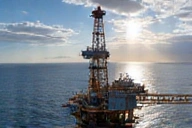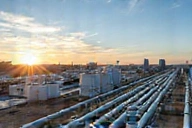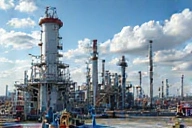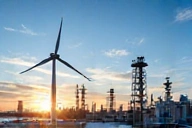Navigating Your Career in Oil & Gas
Discover the diverse and rewarding career paths available in the dynamic oil and gas industry, and learn how to propel your journey towards leadership and managerial excellence.
Detailed Career Trajectories
The oil and gas industry offers a vast array of career trajectories, each with unique challenges and opportunities. From the initial exploration phases to the final distribution of refined products, professionals can find their niche and ascend through various roles. Our focus at RutaGerencialOGUp.com is to highlight how individuals can transition from highly technical roles to strategic managerial positions, leveraging their specialized knowledge and acquiring essential leadership skills.
Whether you're a geologist mapping underground reservoirs, an engineer designing drilling operations, or a logistics specialist optimizing supply chains, understanding the potential for growth is key. We provide insights into the typical progression, required skill sets at each level, and how continuous learning and professional development are paramount for reaching executive leadership within this global industry.
Managerial roles in oil and gas require not only technical acumen but also strong leadership, financial understanding, and strategic planning capabilities. We delve into how these skills are cultivated and applied to lead complex projects, manage diverse teams, and navigate the ever-evolving market dynamics.

Key Industry Segments

Upstream
- Exploration: Geoscientists, Geophysicists, Petroleum Geologists
- Drilling: Drilling Engineers, Well Planners, Rig Managers
- Production: Production Engineers, Reservoir Engineers, Operations Managers
Focuses on the search for and recovery of crude oil and natural gas.

Midstream
- Transportation: Pipeline Engineers, Logistics Managers, Marine Operators
- Storage: Storage Facility Managers, Inventory Analysts
- Processing: Gas Plant Operators, Process Engineers
Involves the processing, storage, and transportation of oil and gas.

Downstream
- Refining: Chemical Engineers, Refinery Operations Managers
- Petrochemicals: Polymer Scientists, Research & Development Specialists
- Marketing & Distribution: Sales Managers, Supply Chain Coordinators
Covers the refining of crude oil and the processing and purifying of raw natural gas.

Renewable Energy Integration
- Transition Roles: Energy Transition Specialists, Sustainability Analysts
- Project Management: Renewable Project Managers
- Innovation: R&D Scientists for alternative energy solutions
Explores the growing intersection of traditional energy with sustainable practices.
Roles and Requirements
Technical Roles
Technical roles form the backbone of the oil and gas industry, requiring specialized scientific and engineering knowledge. These positions are critical for the discovery, extraction, and processing of hydrocarbons.
Petroleum Engineer
Focuses on maximizing hydrocarbon recovery from subsurface reservoirs. This involves designing drilling programs, optimizing production, and managing well integrity.
Requirements:
- Bachelor's or Master's degree in Petroleum Engineering.
- Strong analytical and problem-solving skills.
- Knowledge of reservoir simulation and production optimization software.
Geologist/Geophysicist
Identifies and evaluates potential oil and gas reservoirs. Geologists study rock formations, while geophysicists use seismic data to map subsurface structures.
Requirements:
- Bachelor's or Master's degree in Geology, Geophysics, or Earth Sciences.
- Proficiency in geological mapping and seismic interpretation software.
- Strong field observation and data analysis skills.
Process Engineer
Designs, operates, and optimizes processes in refineries and petrochemical plants to convert raw materials into usable products efficiently and safely.
Requirements:
- Bachelor's or Master's degree in Chemical Engineering.
- Understanding of process simulation tools and safety regulations.
- Strong attention to detail and systems thinking.
Managerial Roles
Managerial roles build upon technical expertise, adding layers of leadership, strategic planning, and financial oversight. These positions are crucial for steering projects and departments towards success.
Project Manager
Oversees the planning, execution, and closing of specific projects, ensuring they are completed on time, within budget, and to scope. This often involves large-scale drilling or infrastructure projects.
Requirements:
- Bachelor's degree in Engineering or related field, often with an MBA or Project Management Professional (PMP) certification.
- Proven experience in managing complex projects, preferably in O&G.
- Exceptional leadership, communication, and risk management skills.
Operations Manager
Manages the day-to-day operations of a plant, field, or facility, ensuring efficiency, safety, and compliance with regulations. They optimize production schedules and manage operational teams.
Requirements:
- Bachelor's degree in Engineering, Operations Management, or related field.
- Extensive experience in operational roles within the industry.
- Strong decision-making, team leadership, and problem-solving abilities.
Supply Chain Manager
Responsible for optimizing the flow of goods, services, and information from suppliers to customers, ensuring cost-effectiveness and efficiency across the entire supply chain.
Requirements:
- Bachelor's or Master's degree in Supply Chain Management, Logistics, or Business.
- Experience with global supply chain dynamics and logistics software.
- Excellent negotiation, analytical, and strategic planning skills.